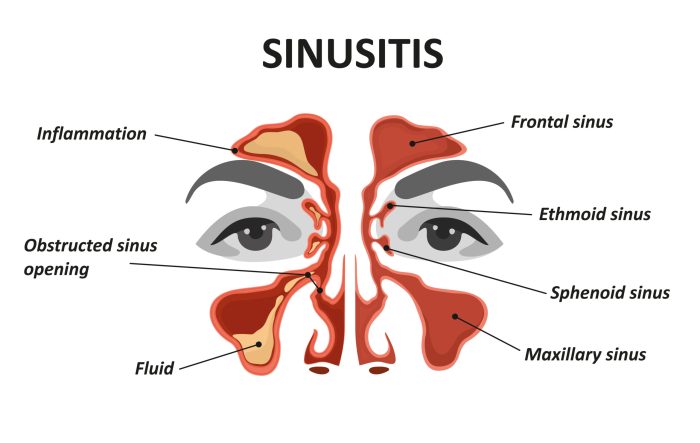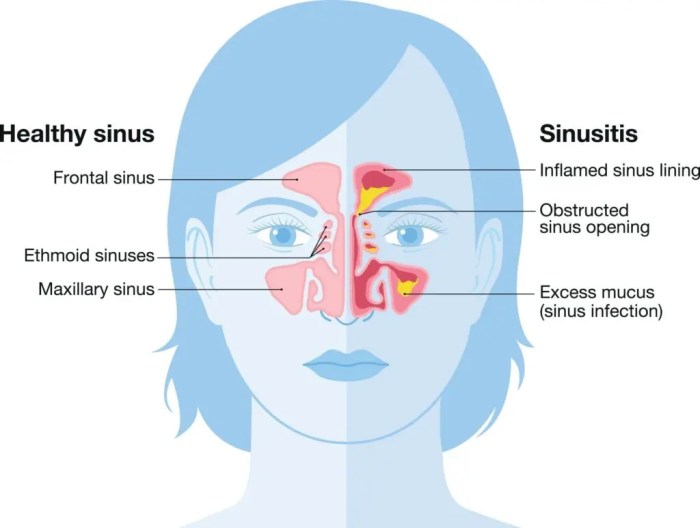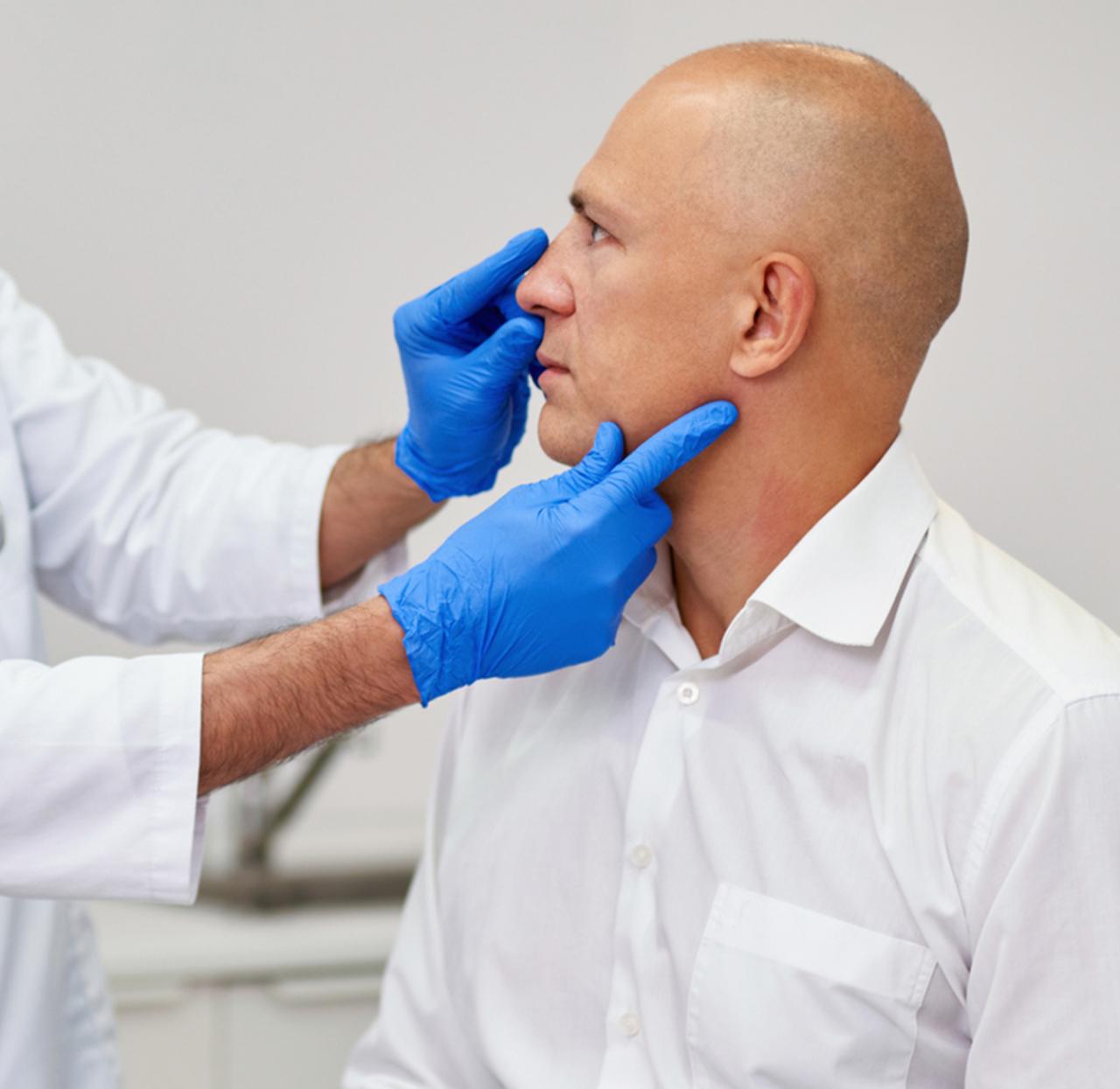Michael has an infection in his sinuses, a common condition that can cause a range of unpleasant symptoms. This comprehensive guide will delve into the causes, symptoms, and treatment options for sinus infections, empowering you with the knowledge to effectively manage this condition.
Sinus infections, also known as sinusitis, occur when the sinuses, air-filled cavities located behind the forehead, nose, and cheekbones, become inflamed and infected. The inflammation can block the sinuses, leading to a buildup of mucus and pressure, which can cause pain, congestion, and other symptoms.
Sinus Infection: Overview: Michael Has An Infection In His Sinuses

Sinusitis, or a sinus infection, is a common condition that affects the sinuses, air-filled cavities located in the skull. These cavities help warm and moisten the air we breathe, as well as produce mucus that helps trap and remove bacteria and other particles.
Sinus infections occur when the sinuses become inflamed and filled with fluid, leading to pain, pressure, and other symptoms. They can be caused by various factors, including bacteria, viruses, and allergies.
Types of Sinus Infections
- Acute sinusitis: A short-term infection that usually lasts less than 4 weeks.
- Subacute sinusitis: An infection that lasts between 4 and 12 weeks.
- Chronic sinusitis: An infection that persists for more than 12 weeks.
Michael’s Sinus Infection: Assessment

To assess Michael’s sinus infection, the healthcare provider will gather information about his symptoms, including their duration and severity. They will also review Michael’s medical history and risk factors for sinus infections, such as allergies or a weakened immune system.
A physical examination will be performed to assess the extent of the infection. This may include examining the nasal passages and sinuses using a nasal endoscope, a thin, lighted tube that allows the healthcare provider to visualize the sinuses.
Treatment Options

The treatment for a sinus infection depends on the severity and cause of the infection. For mild infections, over-the-counter medications such as pain relievers, nasal decongestants, and saline nasal sprays may be sufficient.
For more severe infections, antibiotics may be prescribed to kill the bacteria causing the infection. In some cases, surgery may be necessary to drain the sinuses or remove blockages that are preventing proper drainage.
Over-the-Counter Medications and Home Remedies, Michael has an infection in his sinuses
- Pain relievers: Over-the-counter pain relievers such as ibuprofen or acetaminophen can help reduce pain and inflammation.
- Nasal decongestants: Nasal decongestants can help reduce swelling in the nasal passages and sinuses, making it easier to breathe.
- Saline nasal sprays: Saline nasal sprays can help thin mucus and flush out irritants from the sinuses.
- Steam inhalation: Inhaling steam can help loosen mucus and promote drainage.
- Warm compresses: Applying a warm compress to the face can help reduce pain and inflammation.
Prevention Strategies
There are several things you can do to help prevent sinus infections, including:
- Avoid exposure to allergens and irritants: Avoid exposure to allergens such as pollen, dust, and pet dander, as well as irritants such as smoke and pollution.
- Practice good hygiene: Wash your hands frequently, especially after being in public places or around sick people. Avoid touching your eyes, nose, and mouth.
- Get vaccinated: Getting vaccinated against the flu and pneumonia can help reduce your risk of developing sinus infections.
- Use a humidifier: Using a humidifier in your home or office can help keep the air moist, which can help prevent the sinuses from drying out.
- Irrigate your sinuses: Regularly irrigating your sinuses with a saline nasal spray or neti pot can help flush out irritants and prevent infection.
Additional Considerations
It is important to seek medical attention for a sinus infection if you experience severe symptoms, such as:
- High fever
- Severe headache
- Facial pain or swelling
- Vision changes
- Stiff neck
Untreated sinus infections can lead to serious complications, such as meningitis, brain abscess, and orbital cellulitis. Therefore, it is important to seek medical attention promptly if you suspect you have a sinus infection.
Frequently Asked Questions
What are the common symptoms of a sinus infection?
Common symptoms include facial pain and pressure, nasal congestion, thick nasal discharge, headache, and reduced sense of smell.
What are the different types of sinus infections?
Sinus infections can be classified based on the location of the affected sinuses, such as maxillary sinusitis, frontal sinusitis, ethmoid sinusitis, and sphenoid sinusitis.
How are sinus infections treated?
Treatment options include antibiotics, nasal sprays, decongestants, and pain relievers. In some cases, surgery may be necessary to correct structural abnormalities or remove infected tissue.